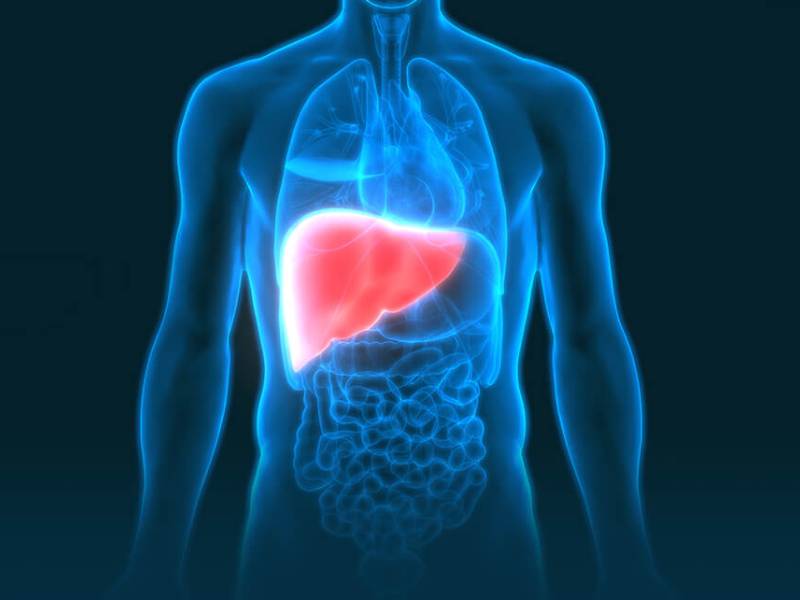What is Adult Liver Transplant?
Liver transplantation is a surgical procedure in which replacing a patient’s diseased liver with a new healthy liver. Liver Transplant is the best treatment option for end-stage liver diseases (liver failure or liver cirrhosis) that can not be treated in any other way.
In most cases, the healthy liver will come from an organ donor who has been declared brain dead (Brain Dead: Other Organs like Hearts, Lungs, Kidney, Liver are functioning but the brain is not working due to trauma, stroke, bleed, etc). Sometimes a healthy living person will donate part of their liver. A living donor is a family member with a compatible blood group. Dr Manoj Dongare Perform the best adult liver transplant in Pune. He is one of the best liver transplant surgeon in Pune having experience in Cadaveric and Living Donor Liver Transplantation.

When does one need a liver transplant?
You can’t live without a working liver. If you are having the following liver disease then you may need a transplant. Diseases that may lead to end-stage liver disease include:
- Liver cirrhosis:
- Chronic liver failure:
- Acute Liver Failure not responding to medical treatment
- Biliary atresia:
- Viral hepatitis:
- Metabolic diseases:
- Primary liver cancers:
- Autoimmune hepatitis:
What are the risks of a liver transplant?
Some complications from liver surgery may include:
- Bleeding
- Infection
- Blocked blood vessels to the new liver
- Leakage of bile or blocked bile ducts
- The new liver not working for a short time right after surgery
Your new liver may also be rejected by your body’s disease-fighting system (immune system). Rejection is the body’s normal reaction to a foreign object or tissue. When a new liver is transplanted into your body, your immune system thinks it is a threat and attacks it.
Self-Care after the liver transplant Procedure:
Some lifestyle changes can protect your overall health after a liver transplant.
- Eat a healthy, balanced diet. Limit salt, cholesterol, and sugar.
- Don’t eat grapefruit or drink grapefruit juice.
- Don’t eat unpasteurized milk products or raw eggs, meat, or fish.
- Don’t drink alcohol
- Get regular exercise.
- Don’t smoke.
Adult Liver transplantation cost in Pune:
The average cost of a adult liver transplant surgery in Pune can range between 15 – 25 lakhs. There are certain factors that affect the cost of an organ transplant.
- Organ Recovery and Transport Charges
- Hospital Infrastructure and Technology
- The expertise of skilled surgeons, their teams, and the use of advanced techniques
- Length of stay in the hospital and category of room opted
- Any health complications
- Recovery and Rehabilitation
- Post-transplant Medication
Book an Appointment:
Dr. Manoj Dongare at Dr. D. Y. Patil Hospital and Research Center provides one of the best Liver treatment and transplant services in Pimpri Chinchwad and Pune. For more information about our comprehensive treatment options, or to request an appointment with one of the best Surgical Liver Transplant and HPB Surgeon in Pune call 09881379573 or Click on Book Appointment for online booking with your near hospital
Common FAQ about Liver Transplantation:
A living donor may be a relative, a spouse, or Family Member.” They’ll have complete medical and psychological tests to keep risks as low as possible. Blood type and body size are crucial to finding a match. A donor younger than 60 years old is ideal.
The liver is received from a donor who’s alive or one who Declared Brain Dead.
- Living donor: In a living donor liver transplant, your doctor will take part of a healthy person’s liver and implant it in you.
- Deceased donor: A donor who’s died may have had an accident or head injury. Their heart is still beating, but they’re legally dead because their brain has stopped working permanently. The donor is usually in an intensive-care unit.
If you meet the criteria for a transplant but don’t have a donor lined up, the hospital will put you on a waiting list. Each patient is given a priority score based on three blood tests. The score is known as MELD (model of end-stage liver disease) in adults and PELD (pediatric end-stage liver disease) in children.
Patients who have the highest scores and acute liver failure get top priority for a liver transplant. If their condition gets worse, their scores rise, and their priority for transplant goes up. This way, the transplants go to people who need them the most.
There are many people with cirrhosis and decompensated liver disease but not all are appropriate candidates for liver transplantation. The conditions listed below are generally considered to be absolute contraindications to liver transplantation.
- Severe, irreversible medical illness that limits short-term life expectancy
- Severe pulmonary hypertension
- Cancer that has spread outside of the liver
- Systemic or uncontrollable infection
- Active substance abuse (drugs and/or alcohol)
- Severe, uncontrolled psychiatric disease
The average hospital stay after a liver transplant is 2 to 3 weeks. Some patients go home sooner, but others have to stay longer.
According to a study, people who have a liver transplant have an 85 to 90% percent chance of living after one year. The five-year survival rate is 75 percent. Sometimes the transplanted liver can fail, or the original disease may return.
